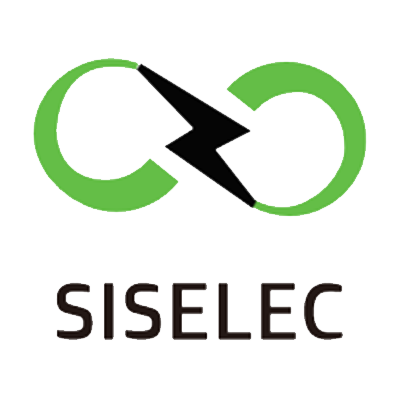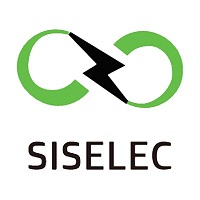- Forging Ahead: A $3.4 Billion Investment Propels Nigeria’s Infrastructure Development and Brightens its Economic news Outlook.
- Transportation Network Expansion
- Rail Infrastructure: A Backbone for Growth
- Powering the Future: Energy Sector Investments
- Renewable Energy: A Sustainable Path Forward
- Digital Transformation: Building a Connected Nigeria
- Broadband Expansion and Last-Mile Connectivity
- Attracting Foreign Direct Investment (FDI)
- Creating an Investor-Friendly Climate
- Monitoring and Evaluation
Forging Ahead: A $3.4 Billion Investment Propels Nigeria’s Infrastructure Development and Brightens its Economic news Outlook.
Nigeria, a nation brimming with potential, stands at the cusp of significant infrastructural advancement, bolstered by a substantial $3.4 billion investment. This influx of capital signals a renewed commitment to development, promising to reshape the economic landscape and improve the quality of life for its citizens. Examining the details of these projects and their projected impact is crucial for understanding the current economic news and future trajectory of this West African powerhouse.
The investment spans across key sectors, including transportation, energy, and digital infrastructure, news all critical for sustainable economic growth. This proactive approach to infrastructural development isn’t merely about building physical structures; it’s about laying the foundation for a more resilient, connected, and prosperous Nigeria.
Transportation Network Expansion
A significant portion of the $3.4 billion is allocated to expanding and modernizing Nigeria’s transportation network. This includes investments in rail infrastructure, road construction, and port upgrades. Improved transportation links will facilitate the movement of goods and people, reducing logistical bottlenecks and fostering trade. This will directly impact businesses, lowering costs and increasing efficiency. Moreover, better connectivity strengthens national unity, integrating remote areas and providing economic opportunities to previously marginalized communities.
| Lagos-Kano Railway Modernization | 1.5 | 2028 |
| Port Harcourt-Maiduguri Rail Line | 2.0 | 2030 |
| Second Niger Bridge Expansion | 0.3 | 2027 |
Rail Infrastructure: A Backbone for Growth
The modernization of the railway network represents a game-changer for Nigeria’s economy. Currently, roads bear the brunt of freight transport, leading to congestion and damage. Shifting freight to rail offers a more efficient and sustainable alternative. The Lagos-Kano railway modernization project, for example, aims to improve both passenger and cargo transportation along this crucial commercial artery. This ongoing upgrade includes track rehabilitation, signalling system improvements, and the acquisition of new rolling stock, significantly reducing travel times and increasing capacity. The long-term vision is to establish a comprehensive rail network that connects major commercial centers, fostering economic integration.
Beyond efficiency gains, modern rail infrastructure stimulates economic activity along rail corridors. It facilitates access to markets for agricultural producers, supports industrial development, and creates employment opportunities in construction, operations, and maintenance. This reverberating effect amplifies the initial investment, contributing to broader economic progress. Innovative financial models, including public-private partnerships (PPPs), are being employed to attract private sector participation and ensure the long-term sustainability of these rail projects.
Powering the Future: Energy Sector Investments
Addressing Nigeria’s persistent energy challenges is paramount for unlocking its economic potential. A significant portion of the $3.4 billion is directed towards investments in power generation, transmission, and distribution. These projects include the development of renewable energy sources, the modernization of existing power plants, and the expansion of the national grid. The goal is to increase electricity access, improve power reliability, and reduce reliance on costly and polluting diesel generators. Reliable and affordable electricity fuels industrial growth, supports small businesses, and enhances the quality of life for households.
- Increased Power Generation Capacity
- Improved Grid Infrastructure
- Expansion of Renewable Energy Sources
- Reduced Reliance on Diesel Generators
- Enhanced Energy Access for Rural Communities
Renewable Energy: A Sustainable Path Forward
Nigeria possesses abundant renewable energy resources, including solar, wind, and hydro power. Harnessing these resources offers a sustainable and environmentally friendly pathway to meet the country’s growing energy demands. Investments in solar farms, wind turbines, and small-hydroelectric power plants are gaining momentum, reducing carbon emissions and diversifying the energy mix. The benefits extend beyond environmental protection; renewable energy projects create local jobs and stimulate economic development in rural areas. Government policies, such as feed-in tariffs and tax incentives, are designed to attract private sector investment in the renewable energy sector, fostering a more sustainable and resilient energy system. Continued investment is essential.
The transition to renewable energy requires addressing challenges related to energy storage, grid integration, and financing. Innovative technologies, such as battery storage systems and smart grids, are being deployed to overcome these hurdles. Furthermore, international collaborations and technical assistance play a crucial role in building local capacity and accelerating the adoption of renewable energy technologies.
Digital Transformation: Building a Connected Nigeria
Recognizing the pivotal role of digital technology in driving economic growth, a substantial portion of the investment is allocated to building a robust digital infrastructure. This includes expanding broadband access, deploying 5G networks, and promoting digital literacy. Improved digital connectivity empowers businesses, enhances access to information and education, and fosters innovation. The digital economy is rapidly expanding, creating new opportunities for entrepreneurs, generating employment, and positioning Nigeria as a regional technology hub.
Broadband Expansion and Last-Mile Connectivity
Expanding broadband access, particularly in rural and underserved areas, is a critical priority. The government is working with private sector partners to deploy fiber optic cables, wireless networks, and satellite technologies to bridge the digital divide. The goal is to ensure that all Nigerians have access to affordable and reliable internet connectivity, enabling them to participate fully in the digital economy. This foundation of connectivity fosters growth.
Improved internet access facilitates e-commerce, online education, telehealth services, and remote work opportunities. It empowers entrepreneurs to reach new markets, reduces transaction costs, and increases efficiency. Furthermore, it improves access to government services, promoting transparency and accountability. Addressing challenges related to affordability, digital literacy, and cybersecurity is crucial for maximizing the benefits of broadband expansion.
Attracting Foreign Direct Investment (FDI)
The $3.4 billion investment serves as a catalyst for attracting further foreign direct investment. A stable macroeconomic environment, improved infrastructure, and a transparent regulatory framework are essential for attracting international investors. The Nigerian government is actively promoting investment opportunities in key sectors, streamlining business processes, and addressing security concerns. Successfully attracting FDI will accelerate economic diversification, create jobs, and transfer valuable knowledge and technology.
- Streamlining Business Processes
- Enhancing Security Measures
- Promoting Investment Opportunities
- Improving the Regulatory Framework
- Addressing Macroeconomic Stability
Creating an Investor-Friendly Climate
To attract FDI, Nigeria must create an investor-friendly climate characterized by predictability, transparency, and the rule of law. This includes upholding contract sanctity, protecting property rights, and ensuring a fair and efficient dispute resolution mechanism. Furthermore, reducing bureaucratic hurdles, simplifying tax regulations, and providing incentives can encourage foreign investment. The effort to curtail corruption is also important. A concerted effort to improve the business climate will unlock Nigeria’s vast economic potential.
Effective communication and promotion of investment opportunities are equally important. The Nigerian Investment Promotion Commission (NIPC) plays a crucial role in attracting and facilitating FDI, providing investors with information, guidance, and support. Collaborating with international investment promotion agencies and participating in global investment forums can enhance Nigeria’s visibility and attract potential investors. This is a long-term endeavor.
Monitoring and Evaluation
Ensuring the effective deployment and long-term sustainability of the $3.4 billion investment requires robust monitoring and evaluation mechanisms. Key performance indicators (KPIs) should be established to track progress, measure impact, and identify areas for improvement. Regular reporting, independent audits, and stakeholder consultations are essential for ensuring accountability and transparency. Data-driven insights will inform policy decisions and optimize the allocation of resources.
| Transportation | Railway Network Length (km) | 10,000 |
| Energy | Electricity Access Rate (%) | 90 |
| Digital Infrastructure | Broadband Penetration Rate (%) | 70 |
This investment represents a pivotal moment for Nigeria’s economic future. Careful planning, effective implementation, and continuous monitoring will be crucial for maximizing its benefits. By fostering a vibrant and diversified economy, the nation is poised to unlock its substantial potential and deliver a brighter future for all its citizens.



